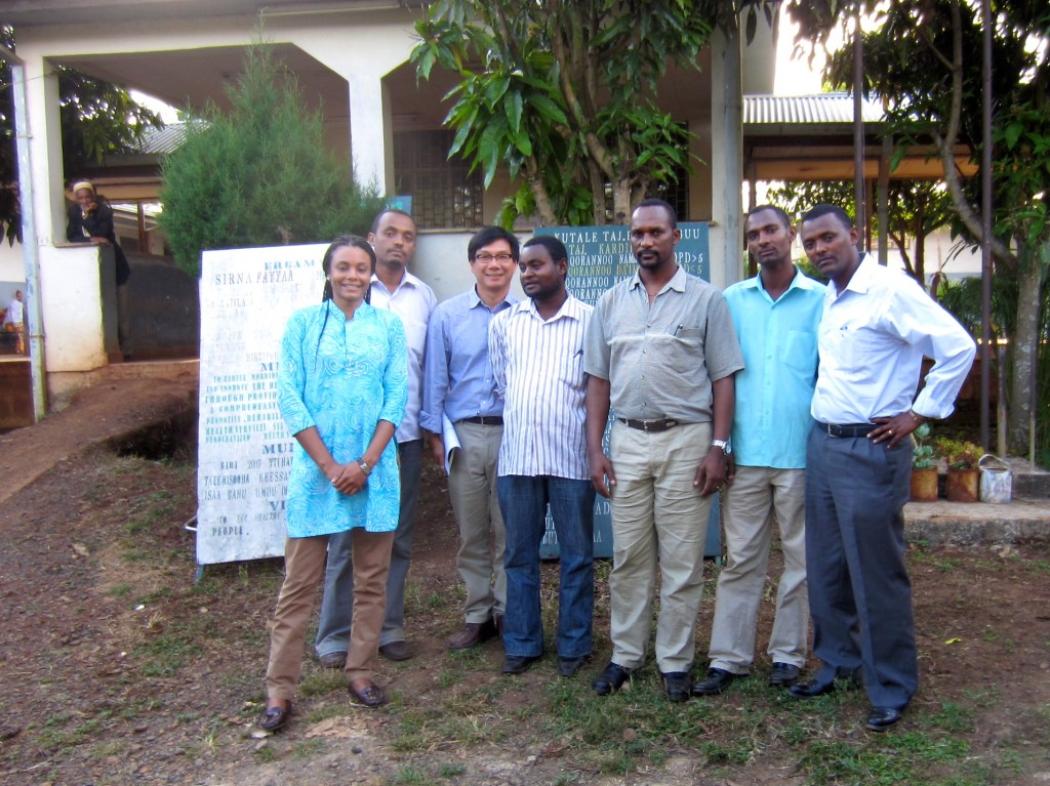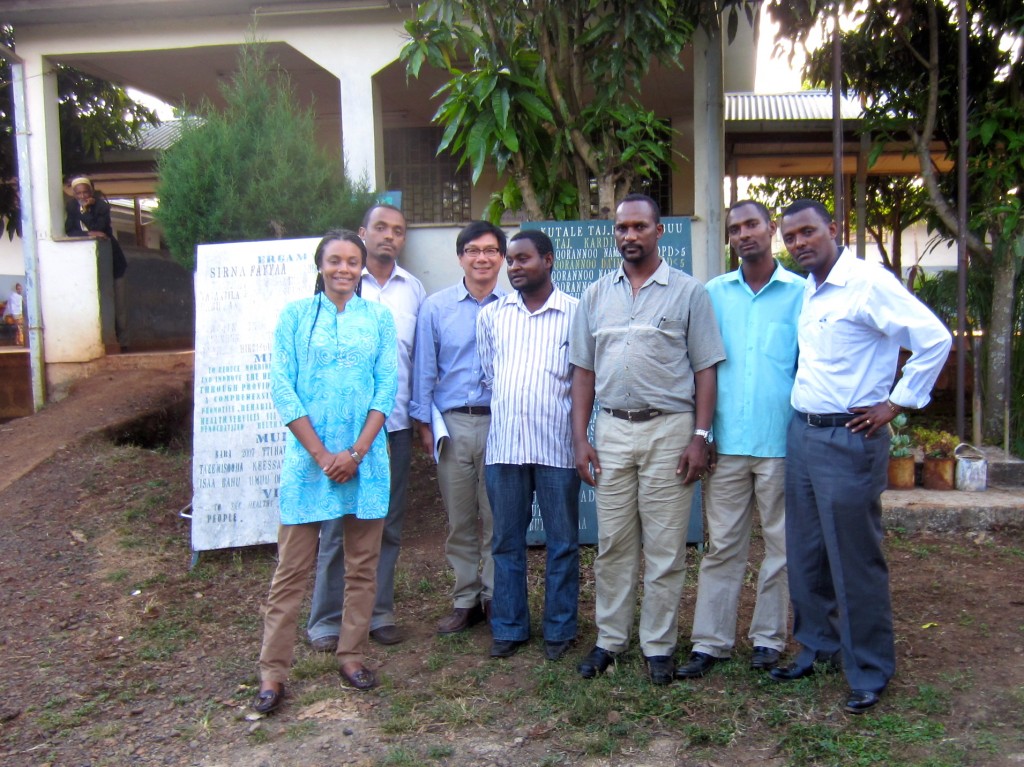Multidisciplinary care teams: an innovative HIV/AIDS workforce response

By Joan Holloway and Imane Sidibe, International Association of Providers of AIDS Care
In this first ever World Health Worker Week, it is important to recognize the critical role frontline health worker are playing in responding to the HIV/AIDS epidemic globally.
According to UNAIDS, an estimated 34.2 million people worldwide were living with HIV at the end of 2011. More people than ever are receiving antiretroviral therapy (ART) as treatment coverage continues to expand. More than 8 million people in low- and middle-income countries were receiving treatment in 2011—1.4 million more than in 2010. At the same time, it is estimated that more than 7 million people in these countries who are clinically eligible for ART are not receiving it.[1]
Expanding access to ART is more than simply delivering drugs. It requires an innovative approach to service delivery, an approach that emphasizes the importance of prevention, retention in care, and adherence to medications. This in turn requires a departure from traditional health care models that depend on specialized professionals in highly concentrated settings. There is a need for HRH solutions that can provide high-quality services at low cost.
These solutions should improve the efficiency and effectiveness of the existing workforce while providing a sustainable approach to improving the quality of and achieving efficiencies in the care delivery. An emerging response that has the potential to meet these criteria is a multidisciplinary care team approach.
Multidisciplinary care teams are partnerships between health care professionals and other cadres of the health workforce, including community health workers, toward a common purpose—improving the quality of and achieving efficiencies in the delivery of health care.
In 2012, the International Association of Providers of AIDS Care (IAPAC), with funding from the OPEC Fund for International Development, began the implementation of a multidisciplinary care team approach to providing HIV care. A multidisciplinary care team approach, in this context, is defined as involving the rational redistribution of task among all members of the health care team. It is a comprehensive approach of which task shifting is a component.
In partnership with Jimma University and the HIV/AIDS Prevention and Control Office of Ethiopia, we began data collection in five clinical sites in Jimma, Ethiopia. The Agaro Health Centre in Jimma was identified as the health centre most in need of an HRH intervention. The information from the date gathered at the site is being used to guide the development and implementation of the multidisciplinary care team approach. Agaro serves about 25,000 people annually and is linked to a health post staffed by a health extension worker. The number of health workers at Agaro is nowhere the number needed to meet the service needs of the population served. A physician is not on site and is available only by referral to one of two specialty hospitals.
 Photo courtesy of IAPAC
Photo courtesy of IAPAC
Implementation of the multidisciplinary care team approach also will involve the introduction of an electronic health information system to link the three components of the delivery system – the health center, the hospital, and the health post. A health literacy and quality of life assessment of the population living with HIV served by the center is due to begin in the next few months, just prior to the introduction of the team approach. One year following implementation, data will again be collected to assess the efficiencies in the provision of HIV/AIDS services including:
• HIV testing and linkage to care opportunities;
• Expanded access to ART for clinically eligible adults and children;
• Expanded prevention of mother-to-child transmission (PMTCT) services; and
• Access to treatment as prevention for serodiscordant couples.
The multidisciplinary care team approach also aims to achieve:
• Improved individual, community, and population treatment outcomes;
• More rational use of existing health workers including health extension and community health workers; and
• Increased job satisfaction and opportunities for clinical leadership for all members of the health care team.
An essential feature of the team approach to HIV/AIDS care is that all members of the care team are involved in making HIV an important entry point to other priority health services, such as maternal and child health, treatment adherence and retention in care and treatment for related co-morbid conditions such as tuberculosis and malaria.
[1] Together we will end AIDS. Joint United Nations Programme on HIV/AIDS;2012
